When it comes to land acquisition negotiations, crafting a well-structured letter can make all the difference in conveying your intentions clearly and professionally. In this article, we'll guide you through the essential components of a successful negotiation letter, ensuring you address all critical factors while maintaining a friendly yet assertive tone. Whether you're a buyer or seller, understanding the nuances of this process can lead to favorable outcomes for both parties. So, if you're ready to master the art of negotiation and secure the land you need, keep reading!

Clarity and Conciseness
A land acquisition negotiation process often requires a clear and concise approach to communicate intentions effectively. The initial proposal typically outlines the reason for acquisition, such as community development projects or commercial expansion, emphasizing the benefits for stakeholders involved, including local residents and businesses. Financial details, including proposed compensation based on market appraisals and nearby property values, must be transparent. Highlighting timelines for negotiations, inspections, and potential development phases increases the clarity of the negotiation process. Clear communication can pave the way for successful agreements, ensuring all parties understand the objectives and requirements associated with the transaction.
Legal Compliance and Regulations
Land acquisition negotiations must adhere to legal compliance and regulations, including applicable federal laws, state statutes, and local ordinances. The Uniform Relocation Assistance and Real Property Acquisition Policies Act, enacted in 1970, outlines fair compensation practices for property owners and tenants. Jurisdiction-specific land-use regulations, such as zoning laws in New York City, dictate permissible uses of acquired land, impacting development potential. Environmental assessments, mandated by the National Environmental Policy Act, evaluate the environmental consequences of proposed projects, ensuring compliance with ecological protections. Additionally, compliance with the National Historic Preservation Act is vital when dealing with historically significant sites. All stakeholders involved in negotiations must consider these regulations to avoid legal disputes and financial penalties.
Valuation and Pricing
Land acquisition negotiations require careful assessment of property value and pricing discussions that consider recent comparable sales, local market conditions, and potential future development. Recent transactions in the vicinity, such as the $2.5 million sale of a 10-acre plot on Main Street, provide a valuable benchmark for establishing the fair market price. Factors affecting valuation include land zoning regulations, proximity to urban infrastructure, and environmental assessments. An appraisal conducted by a certified professional typically estimates land value, while comparable market analysis includes evaluating features like road access and utility availability. As discussions progress, clarity on compensation methods, such as lump-sum payments or installment plans, is essential for all parties involved.
Terms and Conditions
Land acquisition negotiations often involve a detailed exploration of terms and conditions. Key elements include the purchase price, which may be influenced by recent sales in the local market (such as plots sold in 2022 in Urban Development Areas), and payment timelines, typically ranging between 30 to 90 days. Important clauses may involve easements, allowing access to utility companies (like electricity or water suppliers) and ensuring no future development restrictions from local zoning laws, specifically from the city council of the region. Environmental assessments may also be required, especially if the land has historical significance or is near protected areas, like nature reserves. Additionally, conditions regarding the settlement date, responsibilities for closing costs, and provisions for dispute resolution through arbitration within the jurisdiction must be clearly outlined to prevent future complications.
Communication and Persuasion Skills
Effective communication and persuasion skills are essential during land acquisition negotiations, especially in complex transactions involving multiple stakeholders and significant financial commitments. Understanding the interests of both parties can lead to more favorable outcomes. Establishing trust through transparency and active listening fosters a collaborative atmosphere, while articulating the benefits of the acquisition, such as potential development and increased property value, can sway decision-makers. Utilizing data and case studies from similar successful transactions enhances credibility, while demonstrating flexibility in negotiating terms shows a willingness to work together. Clear documentation of proposals and agreements is crucial for avoiding misunderstandings and ensuring a mutually beneficial arrangement.
Letter Template For Land Acquisition Negotiation Samples
Letter template of land acquisition negotiation for public infrastructure.
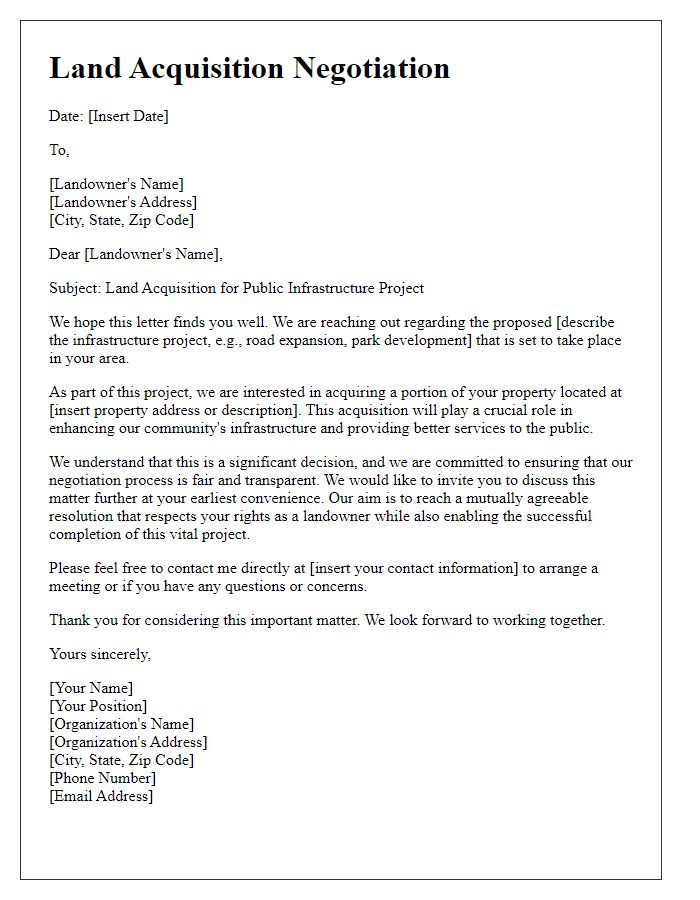
Letter template of land acquisition agreement proposal for environmental preservation.
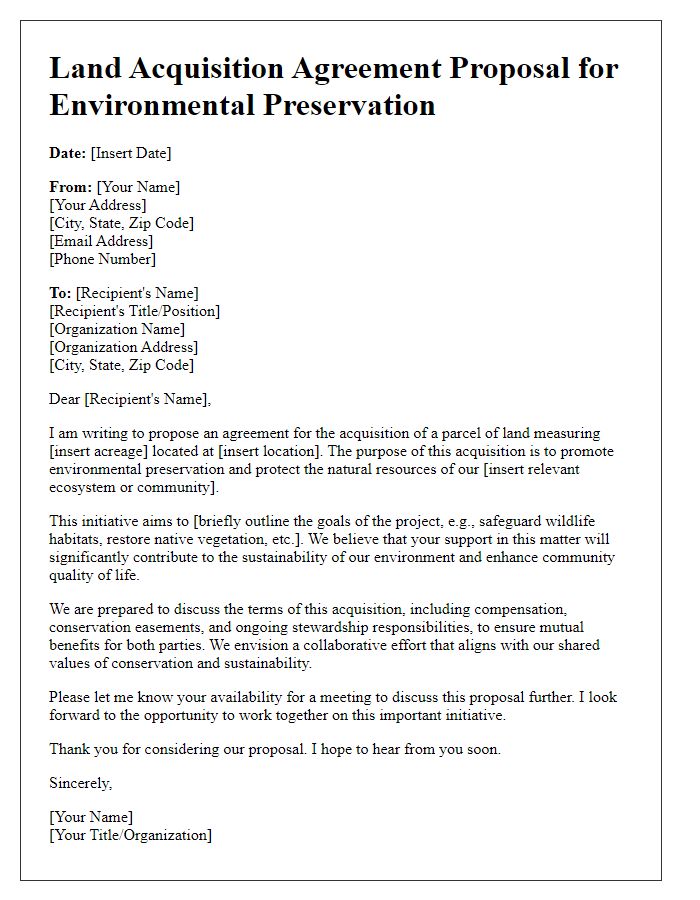
Letter template of land acquisition discussion for transportation improvements.
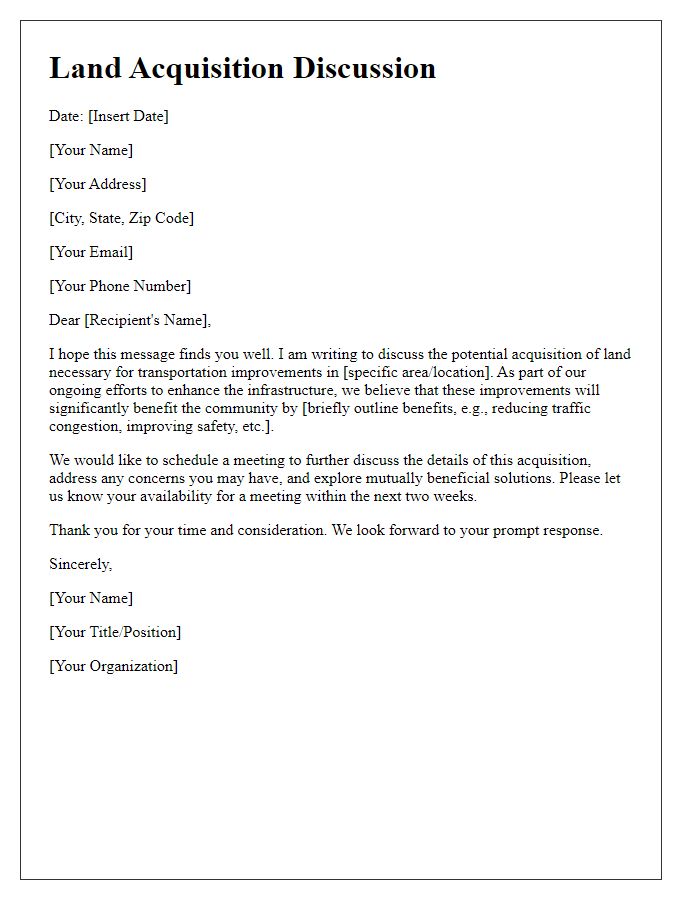

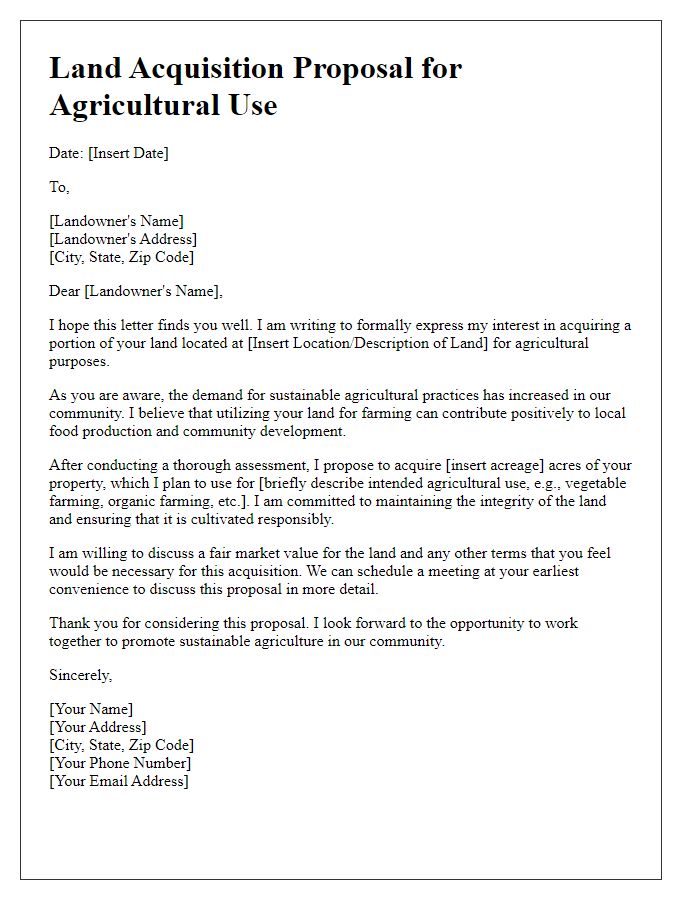
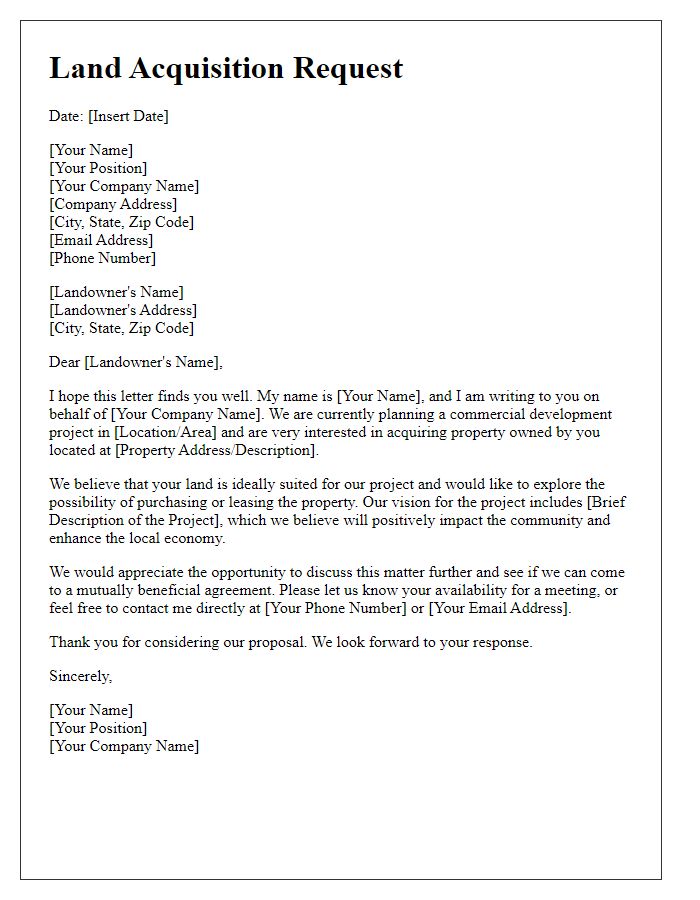
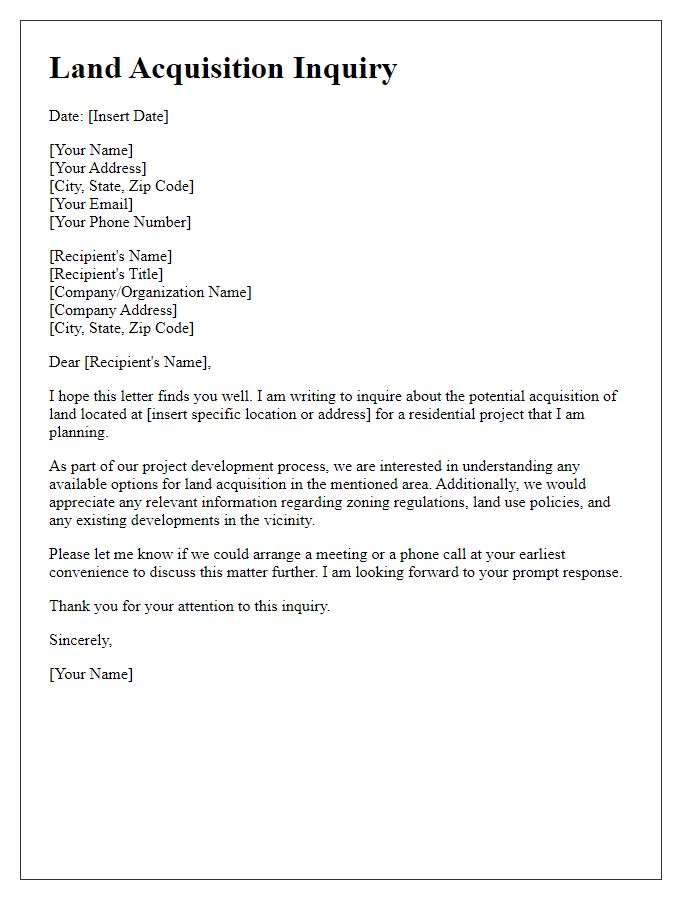
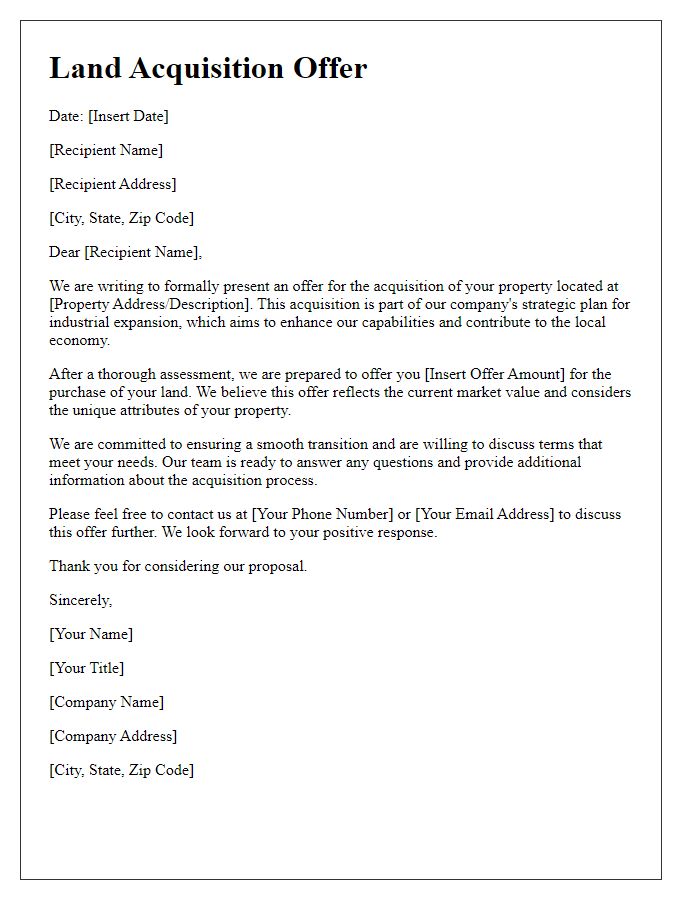
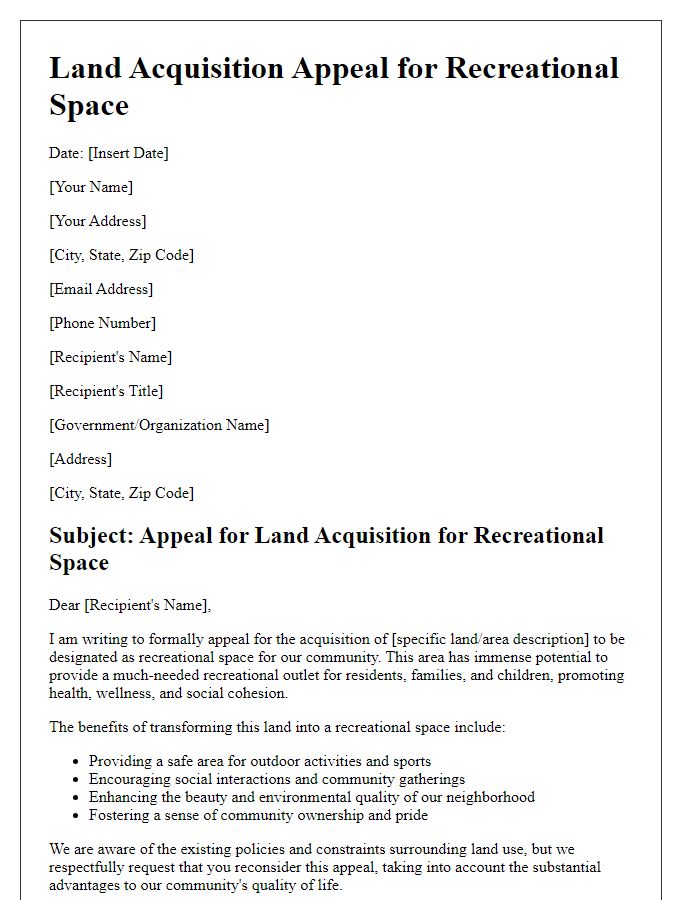
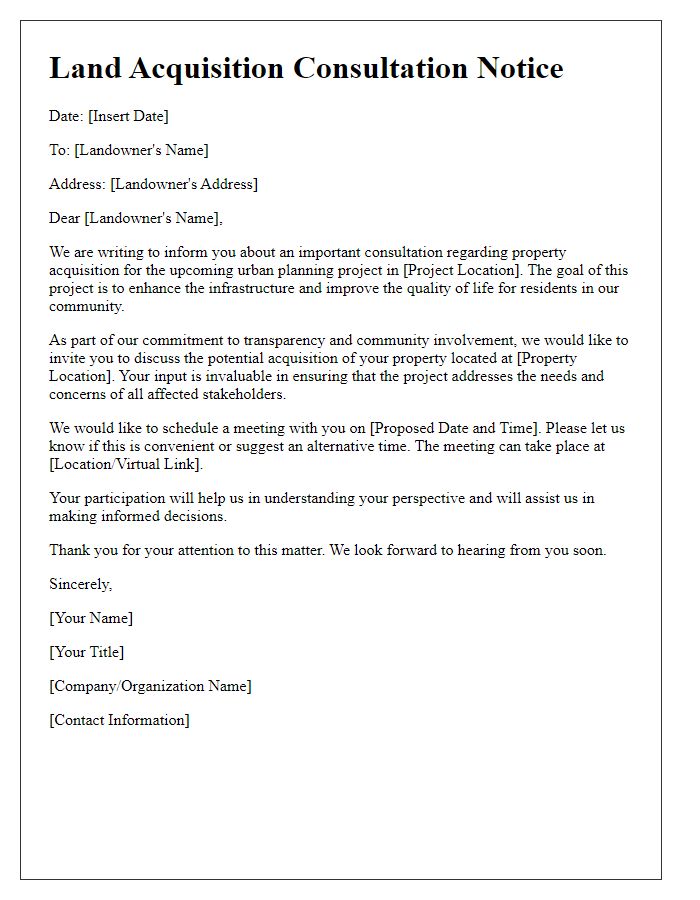



Comments